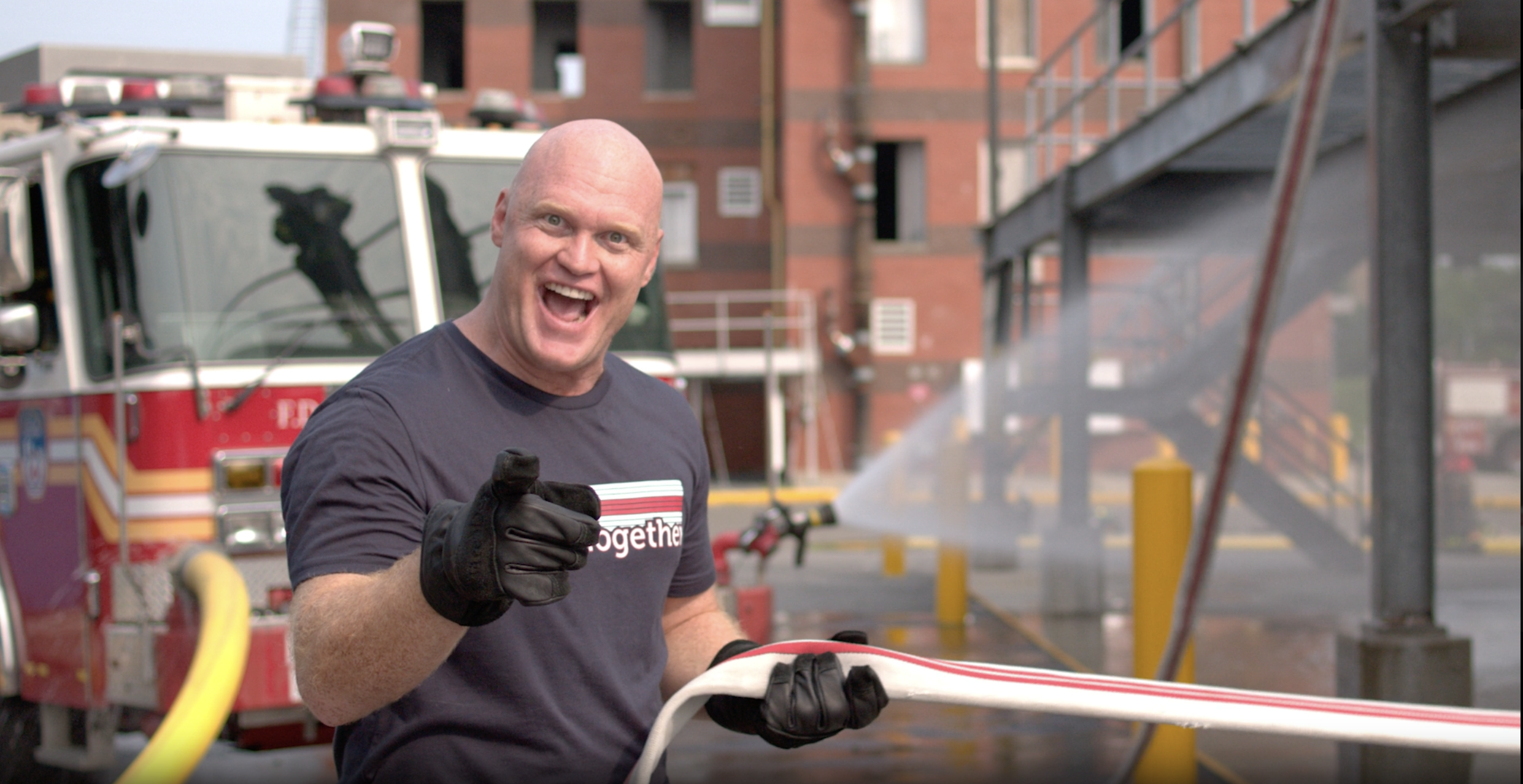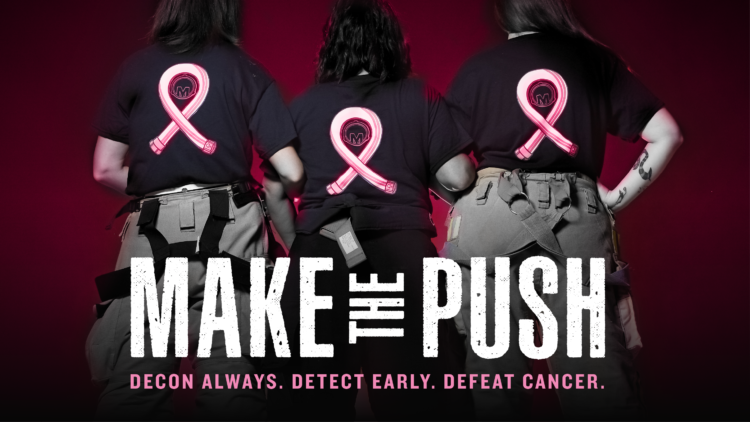Bring on the pink – it's Breast Cancer Awareness Month. Female firefighters have a 46% greater risk of breast cancer and men have 700% greater risk! But beyond awareness, we want to focus on prevention and early detection – because that is what save lives.
Listen, we may be a hose manufacturer, but we're nothing without all of you on the front lines being in top shape. Your health and safety matter to us—whether it’s on the fireground or in your personal life. So just like you check your rig’s equipment, it’s important to check your equipment regularly...
1 in 8 women will develop breast cancer. Every 2 minutes a woman is diagnosed. When caught early, breast cancer has a 99% survival rate.
“Check Your Equipment”—For More Than Just Your Gear
We’ve all been there: double-checking hoses, nozzles, and tools to ensure everything’s in working order before heading out. Well, the same logic applies to your health. Breast cancer is one of the most treatable cancers when detected early, so regular self-exams and screenings are crucial.
Here’s how you can “check your equipment” for yourself:
- Self-Exams: Take a few minutes each month to check for any lumps, changes in size, or other irregularities.
- Mammograms: If you’re over 40 or have a family history of breast cancer, schedule regular screenings.
- Talk to Your Doctor: If you notice something unusual, make the push to get checked by a professional.
DetecTogether is an amazing organization that offers FREE resources on early cancer detection. They teamed up with Jason Patton to develop resources for first responders at ResponseTimeMatters.org. There you can get their free self-check training online, request department training and request a free in-station poster kit.

Decon—Protecting Yourself On and Off the Job
But let's back up... as the saying goes, an ounce of prevention is worth a pound of cure. You accept "the risks" when you become a firefighter, but that doesn't mean you can't work to mitigate them.
Post-call decontamination is not just about cleaning your turnout gear—personal decon is crucial for removing toxic chemicals and carcinogens that you’re exposed to on the job. Using the right products and techniques can help protect you from long-term health risks.
Here are some quick decon tips:
- Shower. After. Every. Call. We get this can be a big ask, but cancer is a big deal and every ounce of prevention is worth the effort.
- Use something better than dish soap. Come on, we know some of you still think it doesn't matter what soap you use. Research tells us if you still have that smell on you, you're still carrying around toxins and carcinogens. (Which also means you're bringing them home to your family.)
- Scrub well from top to toe. Take the time to really lather and clean all of you, but especially the equipment that is particularly high risk (like breasts and genitals). Using a silicone scrubber helps, particularly with the good decon soaps.
- Make it a personal habit – and a department SOP. Make post-call decon standard. Push your local union and your department to provide soaps and shampoos specializing in fire decon. Promote good decon with your crew. Not only will you all be safer – you'll also smell better ;)
MAKE THE PUSH—DECON & Early Detection Saves Lives
Preventative care is your best defence. The earlier cancer is caught, the better the outcome. When breast cancer is caught early, it is 99% survivable!
So this October, we encourage you to “Make the Push to Get Checked." Your life is worth it. Just as you prioritize the condition of your equipment to protect others' lives, prioritize yours by doing your decon reguarly and getting checked.
Like water on the fire — early cancer detection saves lives. Stay safe, stay healthy, and remember: your equipment isn’t just on the rig—it’s you.

